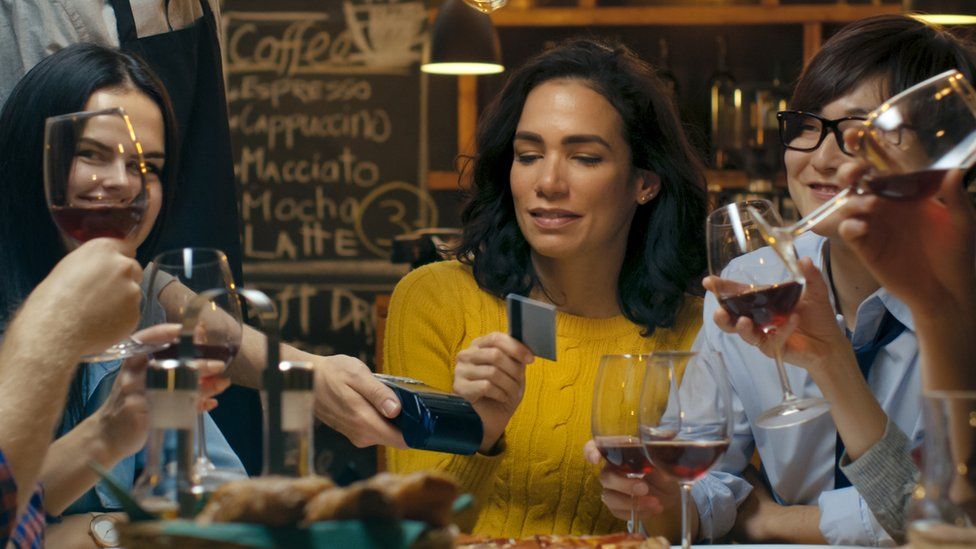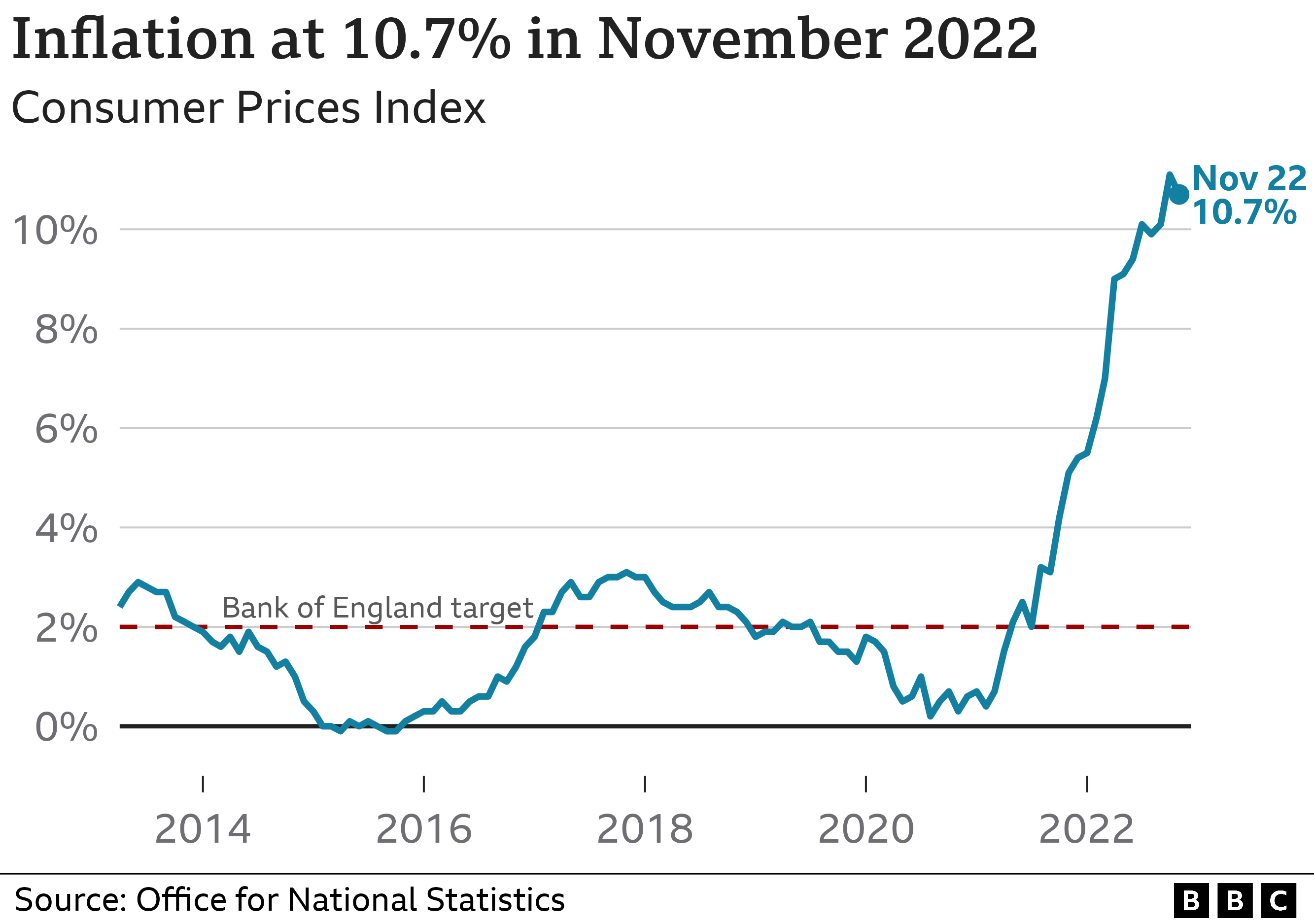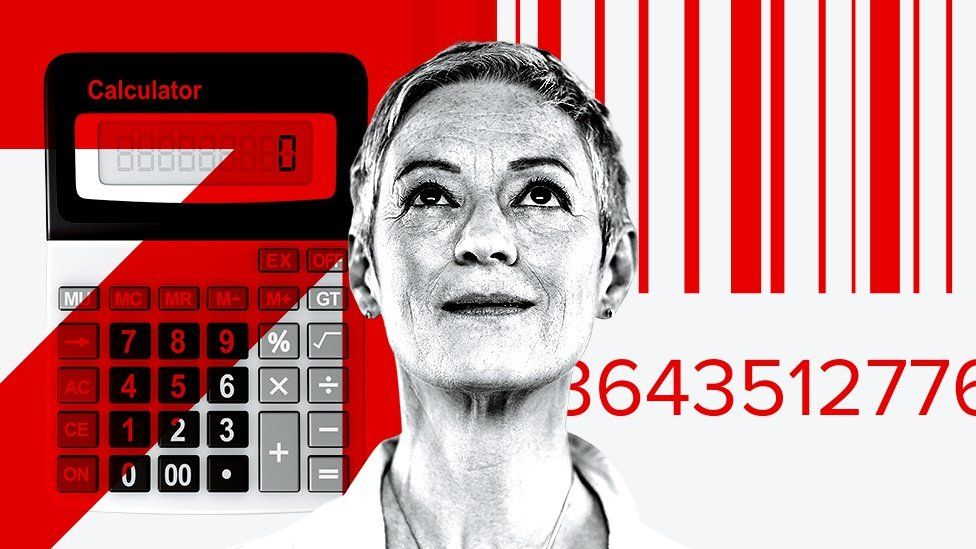 Getty Images
Getty ImagesThe cost of going out drinking has increased ahead of Christmas, with wine, gin and whisky prices rising.
Alcohol prices rose across the board in November at pubs, restaurants and cafes, latest official figures show.
The Office for National Statistics (ONS) said the cost of a night out was now increasing at its fastest rate since late 1991.
It came as overall inflation – the rate at which prices rise – eased slightly but remained near a 40-year high.
Prices rose by 10.7% in the year to November, compared with 11.1% in October, leading some analysts to predict that soaring inflation may have peaked.
Inflation is a measure of the cost of living and to calculate it, the ONS keeps track of the prices of hundreds of everyday items, known as a “basket of goods”.
Lower inflation does not mean the prices of goods will go down, just that they will stop rising as quickly.
- Why are prices rising so much?
- How much are prices rising for you? Try our calculator
The fall in the overall rate of inflation in November was due to petrol prices easing from record highs, and lower prices for second hand cars, the ONS said.
However, this was offset not just by higher alcohol prices in pubs, clubs and cafes, but also rising grocery costs.
Annual food inflation hit 16.5% in November, the ONS said, the highest rate for 45 years and up from 16.4% in October.
Moreover, while petrol and diesel prices are down from their summer peaks, they are still way above what they were last year.
Average petrol and diesel prices stood at 163.6p and 187.9p per litre respectively last month, the ONS said, compared with 145.8p and 149.6p in November 2021.
Why is drinking out getting more expensive?
Like households, pubs and restaurants have been hit by soaring energy bills but are also being stung by higher wholesale costs, which has forced them to put up prices.
The boss of one pub chain has warned pubs face a “bleak” future as costs climb and customers rein in their spending.
Kate Nicholls, the head of industry group UK Hospitality boss, said: “While the headline rate of inflation has reduced slightly, it remains the case that hospitality businesses are seeing intense inflation in every aspect of their operations.
“These levels of inflation will not disappear overnight and businesses are doing everything they can to keep costs down.”
She added that prices could rise further in March if the government ends its energy bill support for hospitality businesses.


The dip in the overall rate of inflation in the year to November should be the start of a few months of falls. October’s four-decade high now looks to have been the peak. But inflation will remain very high for months to come.
Even in the latest figures, food price rises reached new 45-year highs of 16.5%, as is evident in the shops. But its not just petrol prices contributing to a slowing of the inflation rate. Other commodity prices and transport costs are on their way down. The fall in the price of used cars – one of the first indicators of the inflationary pressures last summer – is now accelerating.
While households still face an historic squeeze from the cost of living, the Bank of England may feel able to slow up on rises in interest rates, especially given expectations a recession has already started.
In the absence of further shocks to the world economy, it may be that the very worst is now behind us.

Consumers prices have been rising since last summer as energy, fuel and food costs soar due to the Ukraine war and Covid.
But while the inflation rate eased in November, households are still facing a “tough winter”, warned the Money Advice Trust, a debt advice charity.
It said government support for things such as energy bills would provide some relief, but said it did “not get close to matching the scale of the challenge” many households already faced.
“It’s clear the challenge of affording essential costs, including food and energy bills, isn’t going away anytime soon and for many is only set to get harder with the cold weather now well and truly with us,” said chief executive Joanna Elson.

Leading economists including Paul Dales of Capital Economics and Samuel Tombs of Pantheon Macroeconomics said that November’s figure showed inflation had UK peaked and price rises would continue to slow down.
But Grant Fitzner, chief economist of the ONS, told the BBC’s Today said he believe it was “too early” to tell.
“We’ve only one fall from a 40-year high so let’s wait a few months and see how it goes,” he said.
Chancellor Jeremy Hunt said tackling inflation remained his “top priority”, which was why the government was holding down energy bills this winter with its Energy Price Guarantee scheme and implementing a plan to help halve inflation next year.
“I know it is tough for many right now, but it is vital that we take the tough decisions needed to tackle inflation – the number one enemy that makes everyone poorer,” he said.
But shadow chancellor Rachel Reeves said: “The question people across Britain will be asking themselves this morning is: ‘Do I and my family feel better off under the Tories?’ The answer will be no.”
-
Why are prices rising so much?
-
56 minutes ago

-
-
How much are prices rising for you? Try our calculator
-
5 hours ago

-
